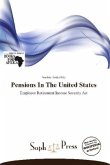Self-dealing is the conduct of a trustee, an attorney, a corporate officer, or other fiduciary that consists of taking advantage of his position in a transaction and acting for his own interests rather than for the interests of the beneficiaries of the trust, corporate shareholders, or his clients. Self-dealing may involve misappropriation or usurpation of corporate assets or opportunities. Self-dealing is a form of conflict of interest. One of the more current and widely agreed on definitions is from political scientists Ken Kernaghan and John Langford in their book The Responsible Public Servant . They define self-dealing as a situation where one takes an action in an official capacity which involves dealing with oneself in a private capacity and which confers a benefit on oneself."
Bitte wählen Sie Ihr Anliegen aus.
Rechnungen
Retourenschein anfordern
Bestellstatus
Storno








